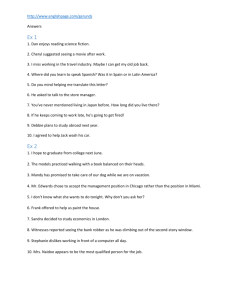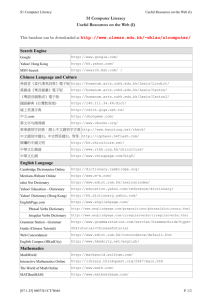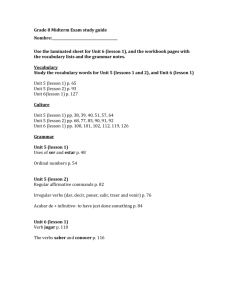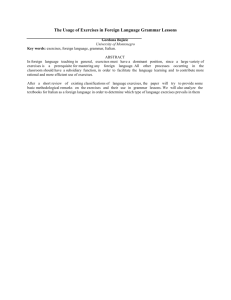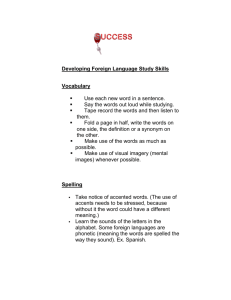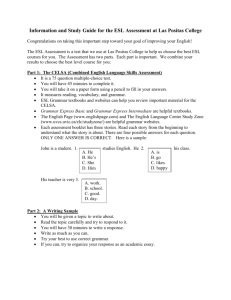English Language Entrance Exam Resources
advertisement
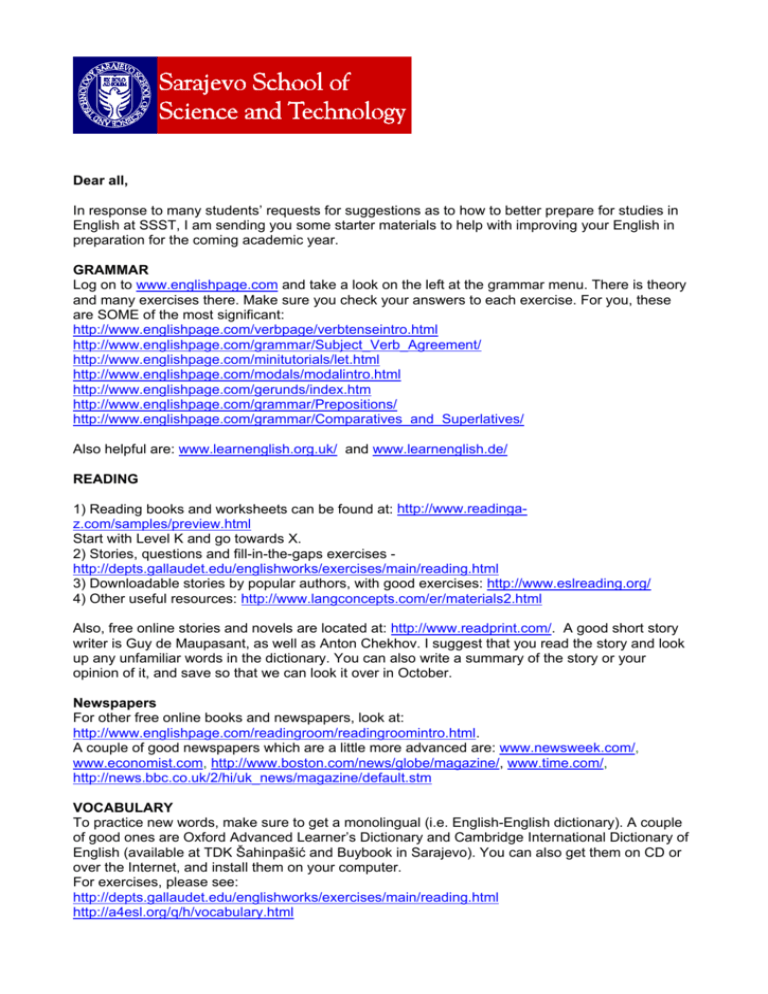
Dear all, In response to many students’ requests for suggestions as to how to better prepare for studies in English at SSST, I am sending you some starter materials to help with improving your English in preparation for the coming academic year. GRAMMAR Log on to www.englishpage.com and take a look on the left at the grammar menu. There is theory and many exercises there. Make sure you check your answers to each exercise. For you, these are SOME of the most significant: http://www.englishpage.com/verbpage/verbtenseintro.html http://www.englishpage.com/grammar/Subject_Verb_Agreement/ http://www.englishpage.com/minitutorials/let.html http://www.englishpage.com/modals/modalintro.html http://www.englishpage.com/gerunds/index.htm http://www.englishpage.com/grammar/Prepositions/ http://www.englishpage.com/grammar/Comparatives_and_Superlatives/ Also helpful are: www.learnenglish.org.uk/ and www.learnenglish.de/ READING 1) Reading books and worksheets can be found at: http://www.readingaz.com/samples/preview.html Start with Level K and go towards X. 2) Stories, questions and fill-in-the-gaps exercises http://depts.gallaudet.edu/englishworks/exercises/main/reading.html 3) Downloadable stories by popular authors, with good exercises: http://www.eslreading.org/ 4) Other useful resources: http://www.langconcepts.com/er/materials2.html Also, free online stories and novels are located at: http://www.readprint.com/. A good short story writer is Guy de Maupasant, as well as Anton Chekhov. I suggest that you read the story and look up any unfamiliar words in the dictionary. You can also write a summary of the story or your opinion of it, and save so that we can look it over in October. Newspapers For other free online books and newspapers, look at: http://www.englishpage.com/readingroom/readingroomintro.html. A couple of good newspapers which are a little more advanced are: www.newsweek.com/, www.economist.com, http://www.boston.com/news/globe/magazine/, www.time.com/, http://news.bbc.co.uk/2/hi/uk_news/magazine/default.stm VOCABULARY To practice new words, make sure to get a monolingual (i.e. English-English dictionary). A couple of good ones are Oxford Advanced Learner’s Dictionary and Cambridge International Dictionary of English (available at TDK Šahinpašić and Buybook in Sarajevo). You can also get them on CD or over the Internet, and install them on your computer. For exercises, please see: http://depts.gallaudet.edu/englishworks/exercises/main/reading.html http://a4esl.org/q/h/vocabulary.html http://iteslj.org/links/ESL/Vocabulary/ http://www.learnenglishfeelgood.com/ The Internet is a great resource, and can be used for many activities. For example, the following link includes instant lessons that include several activities: http://www.english-togo.com/guests/lesson_list.cfm?product_id=17&CFID=2290091&CFTOKEN=34487889 If you feel that these exercises are too difficult for you to follow, we strongly recommend taking a course at one of the language schools in Sarajevo, or seek additional help. Finally, and most importantly, we can only help you if you yourself invest the necessary time and effort. Try to spend AT LEAST an hour each days working on ways to improve your English (grammar exercises, reading newspapers and looking up words in the dictionary…).Try to read and write as much as possible (in English, of course). For any other information, please contact SSST at admissions@ssst.edu.ba. Kind regards, Department of English Faculty of Modern Languages Sarajevo School of Science and Technology
